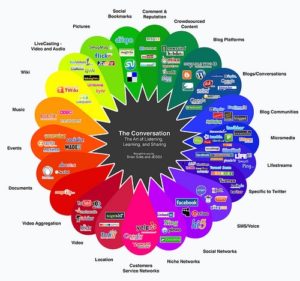Summary of RobertKCole’s Tweets for the period ending midday October 12. Highlights include Advertising Age and Forrester hinting that big changes are required for marketing, YouTube’s Content ID confirms authenticity & monetizes media distribution, US Hotel performance & Sabre stats don’t look too good, and RobertKCole makes the list of Travel Twitterers to follow.
Erin Andrews Peephole Video Demands a Proactive Hotel Industry Response
Erin Andrews victimization by a stallker who modified a peephole and filmed a video using a cell phone camera has been well documented. What has not been publicized is that unmodified hotel peepholes do not put a guest’s personal privacy at risk. Hotel management is able to take three basic measures that can help to eliminate the risk of future peephole related security issues. One distressing recommendation that has arisen as a result of the publicity is the recommendation for women traveling alone to block the hotel room peephole. Instead, women should always use the peephole before opening a hotel room door to avoid the risk of entry by unwanted visitors.
How Google Can Help Enhance Online Travel Research
Recent studies have shown that the research phase of the seven-step online travel process is becoming frustrating for consumers. Many travelers search a large number of sites or spend extended periods of time seeking information regarding airlines, hotels, car rentals, attractions and destinations that are best suited to their interests and needs. Google, with its massive search traffic and extensive advertising platform is well suited to help the travel industry improve travel research. In addition to many innovative tools that are currently offered, Google could help travel marketers by embracing travel industry standards and working to create persona-based traveler profiles that will better align the products of travel suppliers with customer needs.
The World’s Most Infamous Hotel Stay?
Keith Moon, the notorious drummer and perhaps equally feared hotel guest, celebrated his 21st birthday on August, 23 1967 following a concert in Flint, Michigan. The site was the Flint Holiday Inn, who even posted a warm welcome message to Keith on its iconic “great sign.” The 1960’s were largely about pushing boundaries and the loss of innocence. Keith pushed the boundaries; the hospitality industry discovered a new benchmark for room destruction and property damage. Both rock ‘n roll and the hotel industry were forever changed, and the legend of the most world’s most infamous hotel stay was born.
How Google Can Help Facilitate Travel Inspiration
Google, through its embracing the Open Source development community provides a wide variety of tools to developers, if creatively employed, can produce applications that help inspire travel. The Google Code site that supports developers offers numerous technologies that can help online travel sites create more compelling content to support eComerce for airlines, hotels, car rental, attractions and destinations. Google Wave provides a powerful platform for traditional travel agents to engage and collaborate with clients that will enhance their ability to inspire travel.
How Google Can Help Revolutionize Online Travel
A perfect storm of a lack of online travel innovation, traveler frustration, and an economic downturn that limits investment for potential new entrants provides Google with an opportunity to dramatically democratize online travel. With a large number of tools that already help facilitate online travel search, and social media, Google can further simplify access to better organized information to help a broader range of travel suppliers, destinations and sellers increase commerce and competition.

















